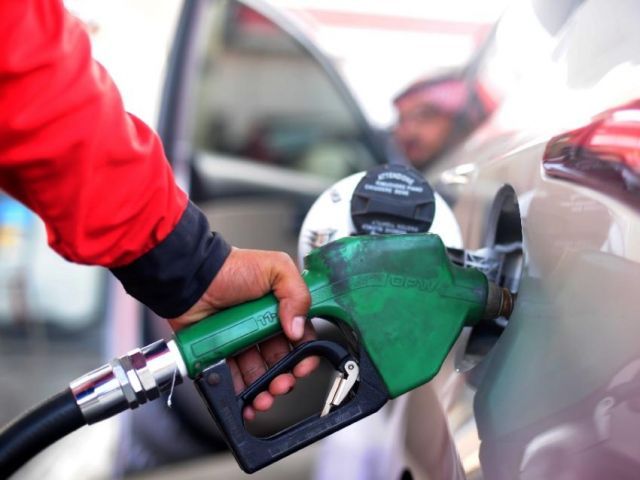Fuel Price Trends in the UAE for 2025
Fuel prices in the UAE have been a subject of interest for many as the country approaches the year 2025. With fluctuations in global oil prices, government policies, and local market trends, it’s essential to understand how these factors will shape the future of fuel pricing in the UAE. Whether you’re a driver, business owner, or simply someone concerned about daily expenses, the changes in fuel prices could have a direct impact on your lifestyle and budget.
Impact of Global Oil Markets on Fuel Prices
The UAE is heavily influenced by global oil market trends, as it is one of the largest oil producers in the world. The price of oil on international markets can significantly affect fuel costs within the country. As oil demand and production fluctuate, the prices of petrol and diesel in the UAE are adjusted accordingly.

Looking ahead to 2025, oil market projections suggest that global demand will continue to rise, especially in emerging markets. Additionally, efforts to transition to renewable energy sources may lead to supply changes, impacting global oil prices. While this could drive prices higher, it also presents an opportunity for countries like the UAE to further invest in alternative energy solutions. As the global market becomes more volatile, the UAE will need to balance its domestic fuel pricing structure to maintain economic stability.
Government Policies and Subsidy Adjustments
The UAE government has historically subsidized fuel prices, but it has also made gradual changes to these subsidies over time. Since 2015, the government has been implementing monthly fuel price adjustments based on the global price of oil. This shift has led to greater transparency and allowed the market to react more freely to price changes.
In 2025, there are likely to be further adjustments in government subsidies, particularly as the UAE continues to diversify its economy away from oil dependence. As part of its Vision 2025 strategy, the government has been focusing on long-term sustainability, and this could include revising fuel price regulations. The government’s approach to balancing fuel prices with its renewable energy goals will play a key role in determining how much the UAE’s fuel prices increase in the coming years.
Factors Driving Fuel Price Increases in 2025
There are several key factors that will drive fuel price increases in the UAE in 2025. These include:
- Rising Global Oil Prices: As global demand increases and production slows in some regions, oil prices may see a rise, which directly affects fuel prices in the UAE.
- Market Volatility: Geopolitical tensions in oil-producing regions, such as the Middle East, could cause sudden spikes in oil prices, impacting the cost of fuel.
- Environmental Regulations: As the UAE intensifies its efforts to curb carbon emissions and protect the environment, there could be additional taxes or levies on traditional fuels, driving prices higher.
- Shift to Electric Vehicles: While the shift towards electric vehicles (EVs) may reduce demand for gasoline and diesel in the long run, the initial transition may result in higher fuel prices as the demand for fossil fuels remains high before EV adoption becomes mainstream.
- Cost of Production: The cost of refining and distributing fuel is also an important factor in determining fuel prices. Any rise in production costs, whether due to inflation or supply chain disruptions, will be reflected in the prices consumers pay.
The Role of Renewable Energy in Shaping Future Fuel Prices
The UAE has made significant strides in diversifying its energy sources, particularly through investments in renewable energy. Projects like the Mohammed bin Rashid Al Maktoum Solar Park and efforts to promote nuclear energy have positioned the UAE as a leader in clean energy within the region. These investments in renewable energy could play a pivotal role in shaping future fuel pricing.
As the UAE continues to develop its clean energy infrastructure, it may seek to reduce its reliance on fossil fuels, which could, in turn, lead to more stability in fuel prices. However, the transition to renewable energy also requires significant investment, and it’s possible that fuel prices may continue to rise to fund these large-scale projects. For consumers, this means that while fuel prices may increase in the short term, there could be long-term benefits in the form of cleaner, more sustainable energy.
Impact on Consumers and Businesses
For the average consumer, the rising cost of fuel in 2025 could mean higher transportation costs. Whether you’re commuting to work, running errands, or planning road trips, an increase in fuel prices directly impacts your budget. For businesses that rely on transportation, whether in logistics, food delivery, or other industries, higher fuel costs could result in higher operational expenses.
In response to this, many businesses in the UAE are likely to explore alternative strategies to mitigate the impact of rising fuel prices. This could include investing in more fuel-efficient vehicles, encouraging employees to carpool, or increasing the use of public transportation. On a larger scale, the government may also step in with subsidies or incentives to help ease the burden on consumers and businesses alike.
Electric Vehicles: The Future of Transportation in the UAE
As fuel prices rise, many UAE residents are turning to electric vehicles (EVs) as a cost-effective alternative. The UAE government has launched several initiatives to promote the adoption of EVs, such as offering incentives for EV buyers, providing free charging stations, and introducing plans for a nationwide charging infrastructure.
By 2025, the number of electric vehicles on the roads in the UAE is expected to grow significantly. This shift will help reduce the reliance on traditional fuels, providing consumers with a greener and potentially more affordable option. Additionally, as the government continues to support the growth of the EV market, it’s likely that the cost of owning and operating an electric vehicle will continue to decrease, further incentivizing consumers to make the switch.
Looking Ahead: What Consumers Can Expect in 2025
Looking ahead to 2025, the UAE’s fuel price landscape is set to change. While it’s unlikely that fuel prices will return to their pre-2015 levels, the government’s efforts to regulate and balance prices in line with global trends should provide some stability for consumers. However, with the growing push toward clean energy and the rise of electric vehicles, the role of traditional fuels in the UAE’s energy mix may begin to diminish.
For now, consumers can expect continued fluctuations in fuel prices, and it’s important to stay informed about market trends and government policies. Planning for future increases in fuel costs, whether through purchasing more fuel-efficient vehicles, exploring alternative transportation options, or considering the long-term benefits of electric vehicles, will help individuals and businesses navigate this shift.
Conclusion: Fuel Prices and the UAE’s Future Outlook
The fuel price landscape in the UAE is set for significant changes in 2025. As the global market experiences volatility and the UAE continues to invest in renewable energy, it’s clear that fuel prices will rise in the short term. However, with the government’s commitment to sustainability and the growing adoption of electric vehicles, the future may hold a more stable and environmentally friendly energy landscape.
For consumers and businesses alike, staying informed about fuel price trends and adjusting to the changing landscape will be key to minimizing the impact of rising costs. By embracing more energy-efficient practices and exploring alternatives like EVs, the UAE can continue its journey toward a more sustainable and cost-effective future.
Energy Source – UAE Oil Prices and Trends
You can also read about, Discover Al-Futtaim Automall.













